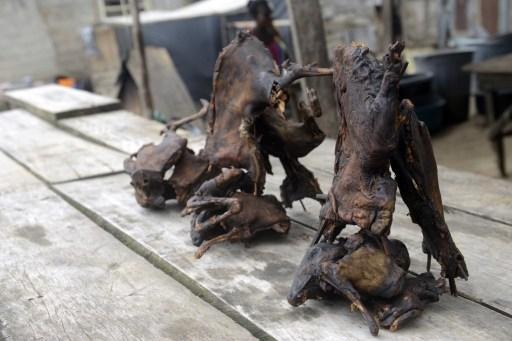Belgum’s Federal Public Health Department has been conducting an investigation since early this year into the importation of bushmeat. The aim is to conduct more targeted checks, the Department’s spokeman, Jan Eyckmans, said on Thursday in response to a documentary on illegal trafficking in meat from wild animals, aired on VRT and RTBF channels.
The investigation will continue up to the end of the year, after which the University of Liege will work on its results. “We systematically take DNA samples from the goods that come in to make sure they do not come from protected animal species,” Eyckmans explained. "We also collect data on the number of passengers, where the flight originated and luggage weight.”
The investigation was requested by Environment Minister Marie-Christine Marghem (Reformist Movement, MR), who is financing it. The Environmental Inspection Service has been beefed up with about a dozen employees. The aim is to determine which meat is brought into Belgium. “It’s often protected species, which is dramatic for wildlife,” Eyckmans explained, adding that sanctions were difficult to apply. “The travelers are often not Belgian citizens, so sanctions are often insufficient, he said.”
France and Switzerland have conducted similar investigations at the airports in Paris and Zurich. Belgium will be able to compare its results with those of the two other countries to have a clearer picture of bushmeat imports.
In the Matonge neighbourhood in Ixelles, RTBF and VRT teams using hidden cameras found bushmeat. Meat that had been sold to them as antilope turned out to be monkey.
VRT journalist Stijn Vercruysse also travelled to the Democratic Republic of Congo and was able to purchase chimpanzee, a protected species, in the eastern town of Kisangani. He returned to Belgium with the meat in his luggage, passing through Belgian customs without a hitch.
The Brussels Times

